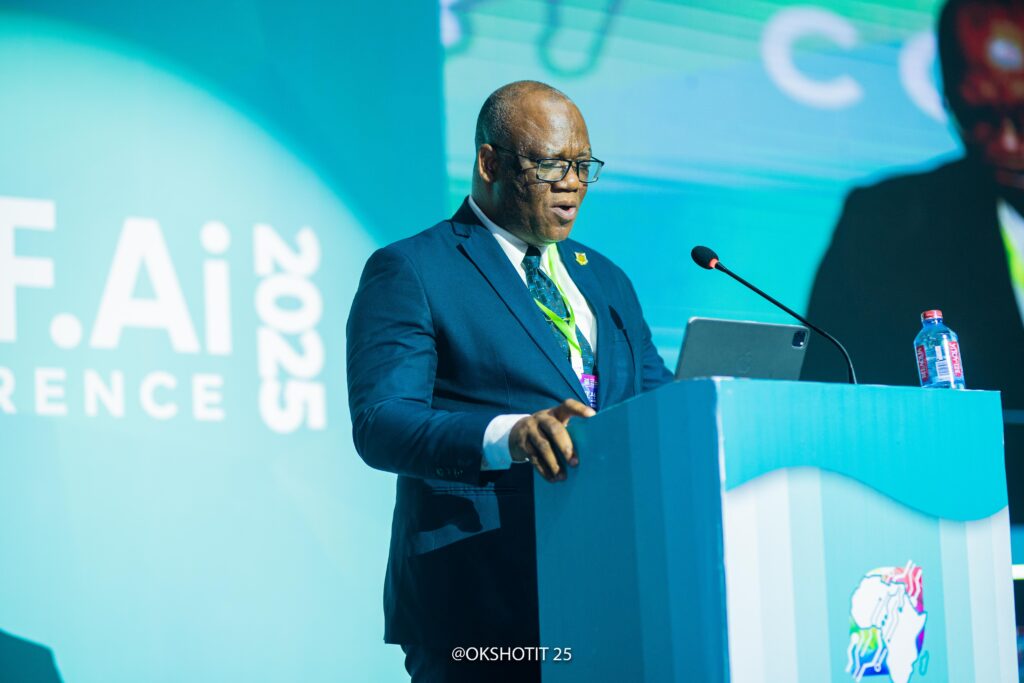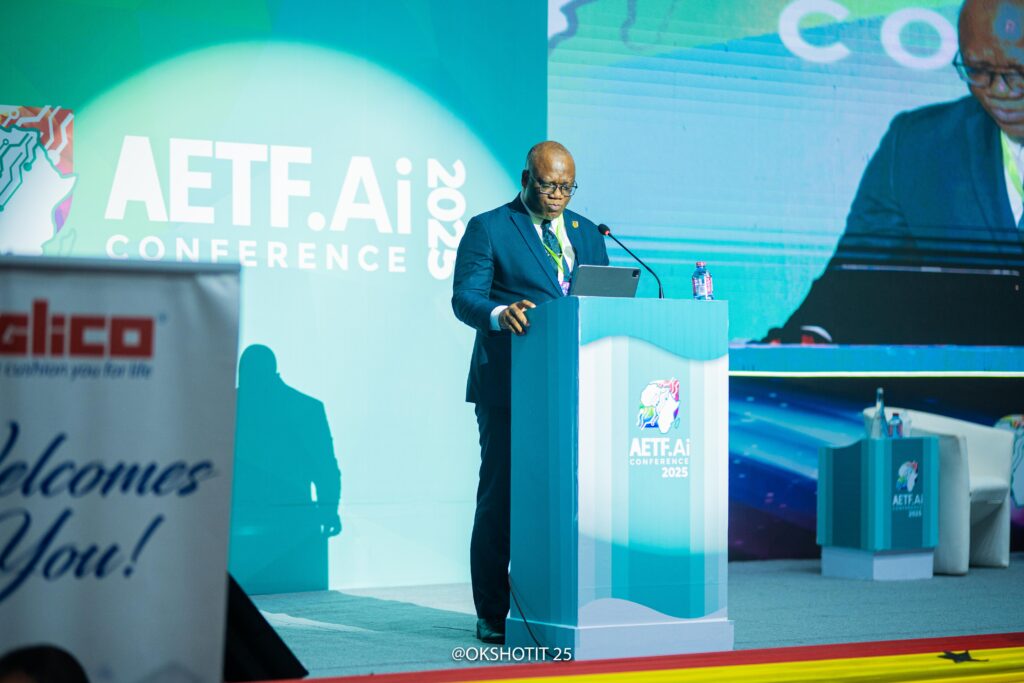At the Africa Education Trust Fund (AETF) AI Conference 2025, Prof. Jerry John Kponyo, Principal Investigator and Scientific Director of the Responsible AI Lab (RAIL) at Kwame Nkrumah University of Science and Technology (KNUST), delivered a keynote address on the future of education. Speaking on behalf of the Vice-Chancellor, Prof. Rita Akosua Dickson, he positioned Africa at a defining moment, outlining a vision where Artificial Intelligence (AI) renews rather than diminishes our educational systems.

Prof. Kponyo began by acknowledging the global educational landscape: classrooms across continents are struggling to meet growing demands, and a persistent digital divide threatens to widen existing gaps. Yet, he reframed these challenges as a profound opportunity. With AI projected to contribute approximately $20 billion to Ghana’s GDP, the critical question is not if we should adopt AI, but how we can harness this technology to serve education rather than distort it.
“AI in education is no longer a distant dream. It is happening now in our classrooms,” stated Prof. Kponyo. He provided compelling examples of AI’s current global impact, demonstrating its tangible benefits. However, he was quick to clarify that the most significant transformation is not about the sophistication of machines or algorithms, but about a fundamental shift in pedagogy.
For generations, education has been primarily defined by one-way instruction—a model where teachers transmit information to passive students. AI is fundamentally changing that dynamic.
“It moves the classroom from a space of delivery to one of dialogue,” Prof. Kponyo explained. “Learning becomes interactive, reflective, and deeply personal.”
This AI-powered transformation enables personalised learning paths, instant feedback, and the automation of administrative tasks, freeing educators to focus on what they do best: mentoring, inspiring, and facilitating critical thinking.
He said this exciting shift must be built on a foundation of trust and responsibility. “AI must suggest and support, not decide. Teachers must remain the central figures in educational decision-making. Students must learn to use AI as a tool for enhancement, not a shortcut. They must be able to demonstrate their own reasoning and creativity, reflecting on how AI assisted them. Our policies must proactively protect equity. AI tools must be designed for local realities—mobile-friendly, low-data, and accessible in multiple languages to bridge, not widen, the digital divide. Teacher training must evolve. It cannot focus only on how to use AI tools, but must also encompass how to teach AI’s use responsibly and effectively,” he asserted
For policymakers, the task is clear: “We must ensure that AI strengthens teachers and not sideline them,” Prof. Kponyo urged.

During the Q&A session, the audience raised pressing questions about job displacement and the use of AI by students. Prof. Kponyo’s responses were rooted in RAIL’s core philosophy of human-centred AI.
He directly addressed the fear of AI taking jobs, stating, “This fear is not accurate because machines are limited by the data they are exposed to. The data with which you train the machine will determine its intelligence.” He added a powerful perspective: “Humans are not using 10% of what we are capable of, so there is no basis for that speculation.”
On whether students should be allowed to use AI in schools, his answer was unequivocal: prohibiting it would be “like buying the latest Benz but choosing to walk.” He emphasised that AI has the capacity to enhance our productivity by at least 40%, concluding that “by using AI, we become better at what we do.”
To guide this responsible adoption, he highlighted the FACESTS framework, developed at RAIL. This framework serves as an essential lens for evaluating AI solutions, ensuring they are:
- Fair
- Accountable
- Confidential
- Ethical
- Transparent
- Safe
“This helps us to quantitatively measure if we are responsible in the application of AI or not,” Prof. Kponyo explained. “Find out if your AI solution adds value to humans and respects the dignity of humans.”
In his closing remarks, Prof. Kponyo painted a hopeful picture of the future. The promise of AI in education is not that machines will teach better than humans.
“It is that humans, if empowered by intelligent tools, will teach and learning will become better than it was before,” he asserted. “AI will not diminish education, but rather renew it, giving teachers back their time, learners back their confidence, and societies back their hope.”
That is the true pedagogy shift. That is the revolution. And at RAIL KNUST, this revolution is already taking shape.